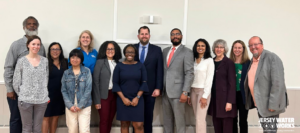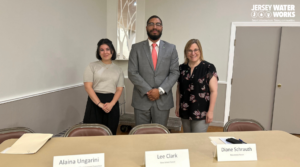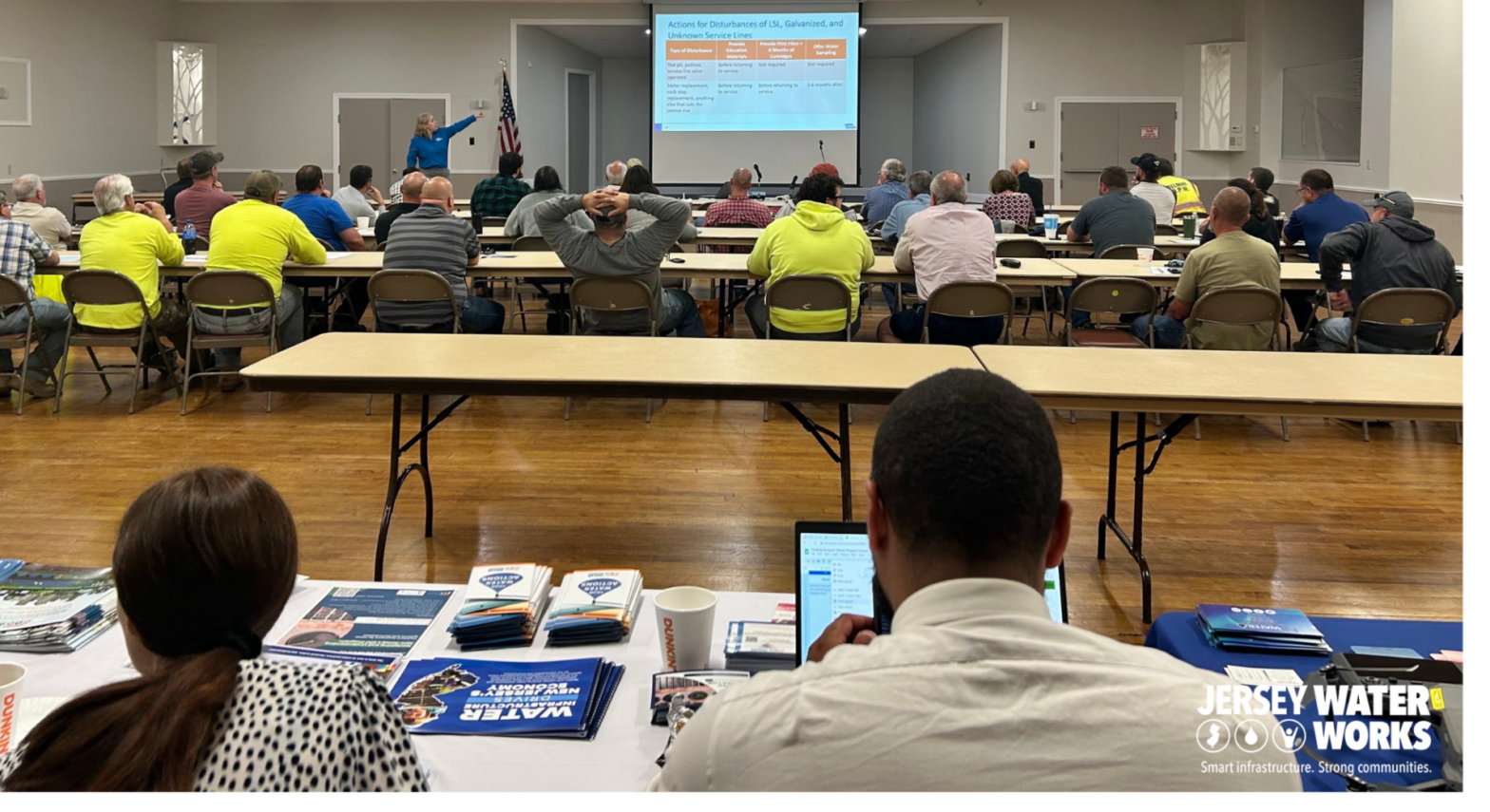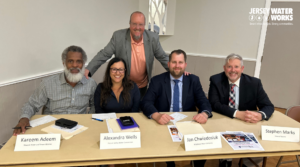Jersey Waters Works’ Lead Service Line Implementation Workgroup Partners NJ Water Association to host an in -person Lead Service Line (LSL) Replacement Financing and Implementation workshop May 24.
New Jersey Water Association and the Jersey Water Works (JWW) Lead Service Line Implementation Workgroup hosted an in-person Lead Service Line (LSL) Replacement Financing and Implementation workshop on May 24. The workshop brought together key experts and illustrated the cross-sector approach needed for equitable, efficient and effective LSL replacements ahead of annual reporting deadlines in July.
New Jersey drinking water systems must update their service line inventories to replace their lead service lines, both utility and customer-owned, by 2031. The New Jersey statute (P.L. 2021, c.183), enacted on July 22, 2021, presents an aggressive timeline and a funding challenge for replacing customer-owned LSLs. Planning, executing, and troubleshooting are all components of project management that systems must undertake to meet annual reporting deadlines. Over 50 participants, mostly utility sector staff, attended and received 3.5 TCH and PDH Credits for NJ-Licensed Water Operators, NJ-Certified Public Works Managers, and NJ Professional Engineers.
The 4 hour workshop topics included:
- Costs of Service Line Investigation Methods and LSL Replacement
- Understanding Technical Assistance for Water Systems
- Lessons Learned about LSL Replacement Program Outreach and Communication
- Federal LCRR Requirements
- LSL Replacement Program Implementation Panel
The presentation slides can be viewed here.
Cross Sector Collaboration is key!

From left to right: Kareem Adeem, City of Newark; Cassie Bolinger, NJF; Alexandra Wells, Passaic Valley Water Commission; Andrea Sapal, JWW; Kristin Epstein, CDM Smith; Paula Figueroa-Vega, JWW; Deandrah Cameron, NJF; Jan Chwiedosiuk, Middlesex Water Company; Lee Clark, NJF; Rina Dalal, CDM Smith; Amy Goldsmith, Clean Water Action; Sandy Kutzing, CDM Smith; and Mike Furrey, Agra Environmental and Laboratory Services.
Experts from several organizations including Clean Water Action NJ, CDM Smith NJ, New Jersey Department of Environmental Protections (NJDEP), and New Jersey Future collaborated to share information around federal and state requirements for lead. Participants learned ways to improve customer communication and community outreach to instill trust, cooperation, and participation from and within communities. Discussions included the implementation of efficiency measures such as the passage of municipal ordinances, which are useful for authorizing access to private property, ensuring public water utilities can replace privately-owned portions of service lines, or making replacements mandatory. In localities with a high proportion of renters, an ordinance may also be useful to permit tenants to provide access to rental properties.
While NJ is projected to receive $380.4 million from the federal Bipartisan Infrastructure Law, LSL replacement is estimated to cost at least $2.3 billion. Navigating the funding landscape can be quite challenging against the mandatory 10 year timeline, as such, the workshop directed participants to various Technical Assistance programs available to access these funds. Along with program planning tips, participants also heard from system operators who adopted a “no customer cost-share” policy, which ensures affordable and equitable access to clean drinking water, increases consumer participation, and pairs well with the “block by block approach.” Participants also learned about other cost saving measures, such as coordinating with road-related construction, which maximizes cost effectiveness, lessens disruption and saves resources. Finally, panelists shared their successes with setting and monitoring performance targets, such as LSLs replaced per work crew per week, to help quicken the pace of the program.
Panel: LSL Replacement Program Implementation
From left to right: Kareem Adeem, City of Newark; Alexandra Wells, Passaic Valley Water Commission; Mike Furrey, Agra Environmental and Laboratory Services; Jan Chwiedosiuk, Middlesex Water; and Stephen Marks, Town of Kearny

Panel: Understanding Technical Assistance for Water Systems
From left to right: Alaina Ungarini, NJDEP; Lee Clark, New Jersey Future; Diane Schrauth, New Jersey Future
Resources and Peers Available to Support Lead Service Line Replacements
The Task Force also created the following new resources:
- Procurement Toolkit Draft for Request for Qualifications (RFQ)
- Alternative Procurement Options for Lead Service Line Replacement
- Model Ordinance: Access to Private Property
- Fifth Liter Sampling: EPA’s Newly-Mandated Technique for Sampling Lead in Drinking Water
- Primer for Mayors: Key Information that NJ Local Officials Need and Want to Know
- Slide Presentation: Financing Lead Service Lines Replacement: Learning from Peers
- Lead Service Line Replacement Implementation Workshop Recap and Resources
Thank you to Jersey Water Works’ Lead in Drinking Water Task Force, and specifically its Lead Service Line Implementation Workgroup, whose mission is to identify and promote best practices for LSL replacement. The Workgroup, which is composed of water utility officials, consultants, and public policy advocates, is chaired by Rich Calbi, Executive Director of Ridgewood Water, and Mike Furrey, owner of Agra Environmental and Lab Services.
Co-chairs
Mike Furrey, Owner, Agra Environmental and Laboratory Services
Rich Calbi, Executive Director, Ridgewood Water
Implementation resources can be viewed here. For information on the resources or the workshop, contact Deandrah Cameron or email info@jerseywaterworks.org.

